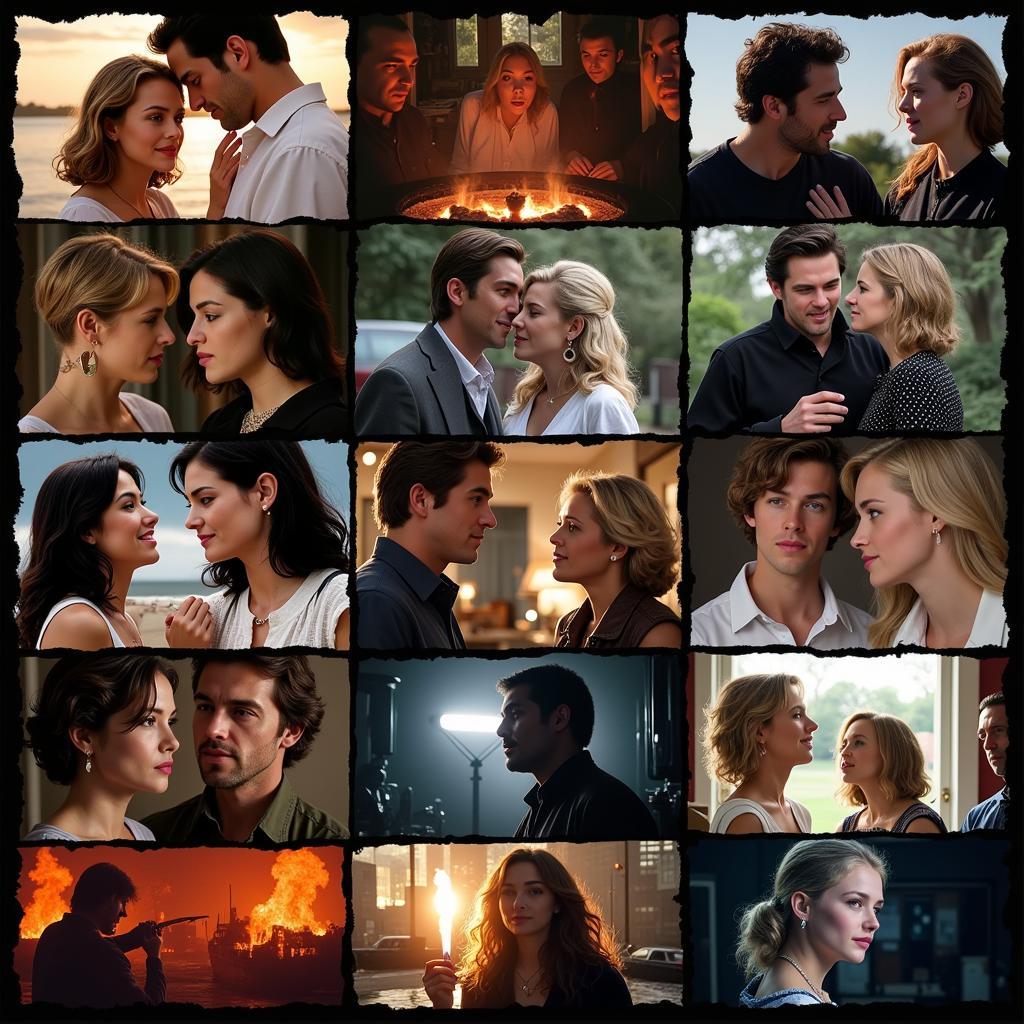Gonzo cinema, with its gritty realism and often controversial subject matter, has carved a unique niche in the world of film. This article delves into the distinctive characteristics of gonzo movies, exploring their historical roots, stylistic elements, and cultural impact.
The Genesis of Gonzo: From Literature to Film
The term “gonzo” originated in journalism, coined in 1970 to describe Hunter S. Thompson’s unconventional and highly subjective writing style. Characterized by a blurring of fact and fiction, first-person narration, and a disregard for traditional journalistic objectivity, gonzo journalism paved the way for a similarly unrestrained approach to filmmaking.
Defining Features of Gonzo Movies: Raw, Unfiltered, and Uncompromising
Gonzo films are instantly recognizable for their distinctive style, often employing:
- Handheld camerawork: Shaky footage adds to the sense of immediacy and realism, placing the viewer directly in the action.
- Fast cuts and jarring edits: This frenetic editing style mirrors the often chaotic and unpredictable nature of the narratives.
- Voiceover narration: A subjective voice, often that of the filmmaker, guides the viewer through the story, offering commentary and personal reflections.
- Blurring of fact and fiction: Gonzo films often blend documentary elements with fictionalized scenes, creating a hybrid form that challenges conventional storytelling.
Key Figures in Gonzo Cinema: Mavericks of the Silver Screen
Several filmmakers are credited with pioneering and popularizing the gonzo style in cinema:
- Hunter S. Thompson & Terry Gilliam (Fear and Loathing in Las Vegas, 1998): This cult classic adaptation of Thompson’s novel perfectly encapsulates the spirit of gonzo, with its psychedelic visuals, drug-fueled escapades, and scathing social commentary.
- Alejandro Jodorowsky (El Topo, 1970; The Holy Mountain, 1973): Jodorowsky’s surrealist and often shocking films pushed the boundaries of cinematic language, exploring themes of religion, sexuality, and the human condition with a raw and uncompromising vision.
- Harmony Korine (Gummo, 1997; Kids, 1995): Korine’s films offer a raw and unflinching look at marginalized youth cultures, utilizing non-professional actors and a documentary-like approach to capture a sense of authenticity.
The Legacy of Gonzo: An Enduring Influence on Modern Cinema
While the heyday of gonzo cinema might seem rooted in the past, its influence continues to resonate in contemporary filmmaking. The found-footage horror genre, with its emphasis on realism and first-person perspectives, owes a clear debt to gonzo techniques. Similarly, the rise of immersive documentaries and hybrid films that blur the lines between reality and fiction can be seen as extensions of the gonzo spirit.
Conclusion: Gonzo Cinema – A Bold and Unforgettable Cinematic Experience
Gonzo cinema, with its raw energy, unflinching gaze, and innovative storytelling techniques, offers a unique and unforgettable cinematic experience. While not for the faint of heart, gonzo films continue to provoke, challenge, and inspire audiences, reminding us of the power of film to hold up a mirror to society and explore the often-uncomfortable truths that lie beneath the surface.
FAQ
1. What are some other examples of gonzo movies?
Beyond the iconic films mentioned above, other notable examples include “Mondo Cane” (1962), “Pink Flamingos” (1970), and “Bad Boy Bubby” (1993).
2. Is gonzo cinema always controversial?
While gonzo films often tackle taboo subjects and push boundaries, not all are inherently controversial. The defining characteristic is their stylistic approach and commitment to a subjective, often raw, portrayal of reality.
3. What is the future of gonzo cinema?
As filmmaking technology evolves and audiences seek increasingly immersive and unconventional narratives, the spirit of gonzo is likely to find new life in innovative and boundary-pushing ways.
For any questions or assistance navigating our extensive library of movies, please don’t hesitate to contact our 24/7 customer support team at Phone Number: 02933444567, Email: nanathemovies@gmail.com. Or visit us at: RF55+W7R, Lê Hồng Phong, Vị Tân, Vị Thanh, Hậu Giang, Việt Nam.
